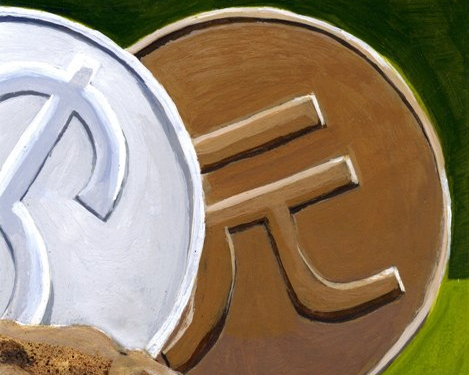The FINANCIAL — The People’s Bank of China fixed the yuan’s mid-point at 6.4856 against the US dollar on Monday.
That means that Chinese currency has hit a record high against the US dollar. As the US Treasury department said, the Chinese yuan was “undervalued but not manipulated”.
According to the rankings, China is the world's biggest exporter.
As the BBC web-site publishes,The US and other major economies have said that China's policy of keeping the value of its currency low gives an unfair advantage to its manufacturers.
There have also been concerns that China's currency policies have also been responsible in part for big trade imbalances with its trading partners.
There have been repeated calls in the US to label China a currency manipulator, given Beijing's currency policies and reluctance to let the yuan trade freely.
China however has maintained that while it is willing to allow the yuan to appreciate, its pace has to be gradual.
According to the British Broadcasting, It said that a sudden rise in the yuan will not only be detrimental to its export sector but will also have a negative impact on the overall economy.
In its report released on Friday, the US Treasury Department said that although China's currency was undervalued, the country was not a currency manipulator.
Analysts say that while there has been considerable pressure within the US, it seems that the Treasury Department had taken on board China's concerns about a sharp rise.
"Manipulation carries negative connotation. The intention is to mislead", said Peter Esho, chief market analyst at City Index.
"They are acknowledging that their (China's) intentions aren't to mislead," he added.
In an attempt to show its intent on letting the value of its currency rise, China loosened its peg to the US dollar in June 2010.
The yuan has gained more than 5% against the dollar since then.
However the US Treasury report said that the rise has not been up to their expectations. "Treasury's view… is that the progress thus far is insufficient and that more progress is needed."
Many analysts are of the view that China is trying to make sure that the appreciation in its currency has the minimum impact on its economy.
"They want to do it in a way that is sustainable and gradual," said Mr Esho.
"A way that gives Chinese exporters enough time to adjust. The Chinese economy has to be in a position to absorb the appreciating currency", he added.
Mr Esho also said that since China is so reliant on its export sector "the government will not let exporters suffer, just to appease foreign concerns."
China's currency policy has not only created problems with its trading partners. It has also contributed to domestic problems.
Inflation in China has been rising sharply as the costs of oil, food and other essential commodities continue to spike.
Consumer prices rose by 5.3% in April compared with the same month a year ago.
Analysts say that while China has to take care of the interests of its export sector, it has also got to keep in mind that a lower valued currency makes imports more expensive and adds to inflation.
"I think really it's a balancing act. If the currency is undervalued you're going to have inflationary pressure on your economy," said Mr Esho.
"That will eventually be a hindrance to growth and that's China's biggest worry," he added.































Discussion about this post